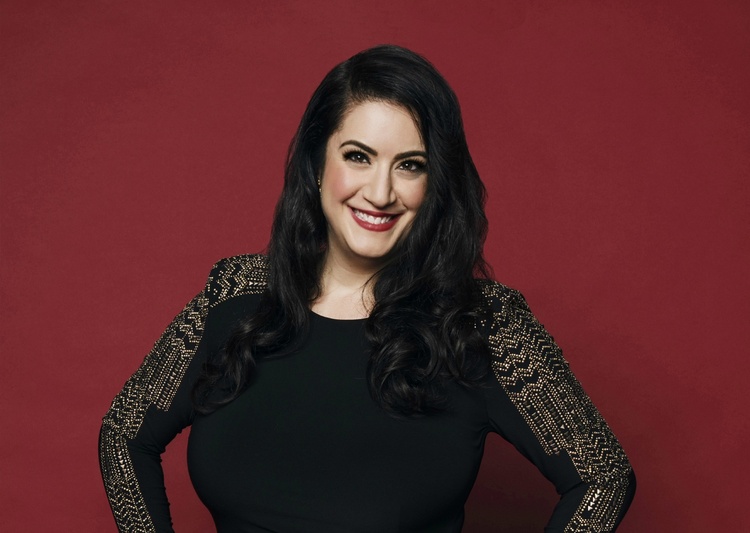Her passion grew over the years, even when her parents told her that before she could pursue a career in music, she would have to go to university.
The Armenian-Australian talent completed a business and IT degree, then returned to her lifelong goal: becoming a singer.
She didn’t know a great deal about opera and had no interest in the art form until she attended a concert in Sydney by Armenian soprano Lillian Ovchian.
As soon as Aroyan heard the soprano sing, she was inspired to learn the tricks of the trade from her.
After just a week of studying with Ovchian, who’s still her teacher to this day, Aroyan fell madly in love with opera.
She honed her skills at the Sydney Conservatorium of Music and abroad thanks to a series of scholarships that brought her first to New York for two years and then to Modena with the Italian Opera Foundation Competition, which allowed her to study under Mirella Freni.
“At high school I studied French for the first two years,” Aroyan said.
“In retrospect, I would’ve loved to have studied Italian because there was an amazing teacher and it would have made my life much easier!”
The singer worked with language coach Nicole Dorigo both at the conservatorium and with Opera Australia, where she’s been performing as a soprano since 2013.
Learning the pronunciation of the libretto is an important part of the preparation before rehearsals, which generally take place at the Opera Australia headquarters in Surry Hills.
The singers work with the conductor, director and language coach in order to illustrate the opera and stay true to the composer’s intentions.
“Our aim is to move people, to affect people, and give them a sense of escapism into a different world, a different time and place from their everyday lives,” she explained.
“I’ve studied a lot of diction and it’s very appealing; I love Italian and it was the easiest for me to pick up, because sometimes, there are similar words or mannerisms in Armenian.”
Aroyan has also had to study Czech, German and Latin for roles she’s played on stage.
Italy is a country dear to the singer: her European debut took place in Bari and, last September, she had the opportunity to perform Aida in Busseto, the birthplace of Giuseppe Verdi, during a festival dedicated to the revered composer.
Although she’s not fluent, Aroyan had no problem integrating into the Italian cities where she’s lived for stints.
“What I like most about Italy are the people and the food,” she said.
“Italians are very similar to Armenians: we’re very family-oriented and welcoming to others.”
Aroyan is an advocate for language studies.
“I think languages are very important and it shows great respect to be able to speak somebody else’s language,” she said.
“I suggest starting at a very young age to learn as many languages as possible; it’s very important in this multicultural world we live in.”
While she loves learning about other languages and cultures, Aroyan has strong ties to Armenian, her family’s language.
She promoted the history of the Central Asian country during a concert for the centenary of the Armenian genocide in 2015: through music, dance and poetry, she told the story of her great-grandmother, Baydzar, who became an orphan due to the extermination of her people, but who managed to survive and thrive.
Aroyan admitted that her profession comes with many challenges and sacrifices.
“We work immensely hard in a very competitive industry that is constantly evolving,” she said.
“It’s been a difficult journey at times, but having the support of my family and friends has been a big help, especially as they understand my commitment to my singing career.”
The soprano advises anyone wanting to pursue a career as an opera singer to have lots of patience and perseverance.
“If this career is everything you dream about doing, if it truly makes you happy, then sometimes great success requires greater sacrifice,” she concluded.
“Nothing beats that electrifying feeling you get on stage in front of an audience, your voice soaring over a full orchestra in some of the most beautiful opera houses in the world, and receiving that gratitude from the audience at the end of each performance.”












